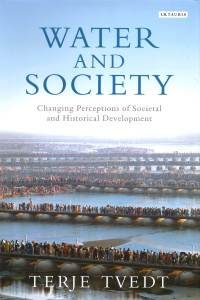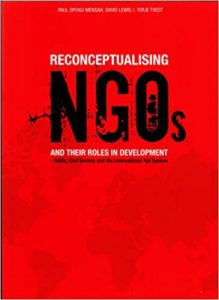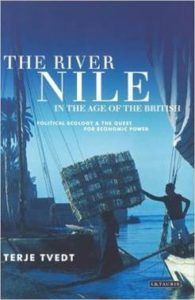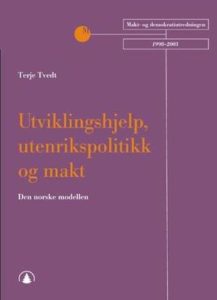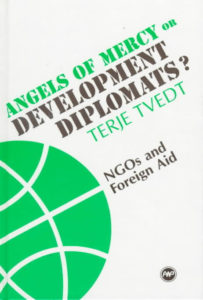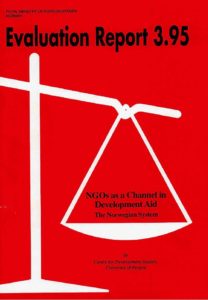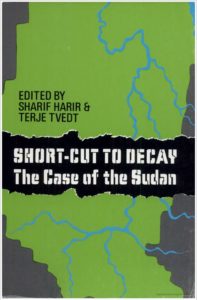Tvedt, T. (2020). Verdenshistorie. Med fortiden som speil. [World history. Wtih the past as mirror], Oslo: Stenersen forlag.
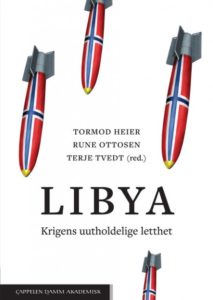
Heier, Tormor, Rune Ottosen og Terje Tvedt (red.) 2019. Libya. Krigens uutholdelige letthet, Oslo: Cappelen Dam
Tvedt, T. (2016). Water and Society. Changing Perspectives of Societal and Historical Development. London: Tauris (ISBN 9781784530792).
Although focusing on water-society relationships in analyses of societies, this book also discusses issues like theories of development, the rise of the West, theories about state sovereignty and the idea’s history, the partition of Africa, the understanding of climate and development, how to understand religion and development etc. The link above includes foreword and a list of contents.
Tvedt, T. (2009). Utviklingshjelp, utenrikspolitikk og makt. Den norske modellen [Development aid, foreign policy and power. The Norwegian model, in Norwegian]. (2. ed.), Oslo: Gyldendal Akademisk (ISBN 978-82-05-39199-4).
The book reconstructs the historical development of the aid system in Norway, the relationship between development aid, Norwegian world views and self-images, as well as the relationship between foreign policy and development aid. It shows, based on a wealth of empirical data and information and by employing new concepts and approaches, how “The Norwegian Model” developed and impacted national history at large. This book is a revised and extended version of the the 2003-book with the same title.
Tvedt, T., Opku-Mensah, P. & Lewis, D. (eds.) (2007). Reconceptualising NGOs and their roles in Development: NGOs, Civil Society and the International Aid System. Aalborg: Aalborg Universitetsforlag. (ISBN 978-877307799-3).
The overall aim of the book is to move forward the critical research agenda on NGOs and development by challenging its normative biases, using approaches drawn from a range of disciplinary perspectives including historical ethnography, organizational studies, political science, critical theory and anthropology. This books seeks to present some new perspectives on NGOs and how the field should be researched. Its thirteen chapters are each written by authoritative researchers in the field and they aim to to analytically integrate the international aid system in theoretical frameworks that can improve our understanding of NGOs and their roles in development.
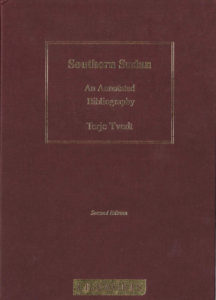
Tvedt, T. et al. (2004). Southern Sudan: An Annotated Bibliography. (2 Vols.), London: Tauris (ISBN 1860649378).
This bibliography on the South Sudan in two volumes contains all literature published between 1850 and 2002. It presents researchers, consultants, planners, aid organizations and others with the most comprehensive overview of the literature on the southern Sudan. To facilitate ease of use it is organized according to important topics of regional development: agriculture and pastoralism; anthropological and cultural studies; British and European colonialism; Christian mission and church studies; development; fisheries; health; pre-colonial history; language studies; natural sciences; politics, ethnic and religious strife and civil war; travel and geography; and water and climate. There is a separate section detailing reports produced by consultants, governments, NGOs and UN and international aid organizations. An inventory of NGO and UN organizations working in the region and a chronology of historical events are also included.
For an earlier and not so complete version, see Tvedt, T, et al. (2000). First edition.
- An annotated bibliography on the Southern Sudan, 1850-2000. Vol. 1
- An annotated bibliography on the Southern Sudan, 1850-2000. Vol. 2
Tvedt, T. (2004). The River Nile in the Age of the British: Political Ecology and the Quest for Economic Power. I.B. Tauris. London.
Although this book focus on British policies for the Nile, it also deals with the World Bank’s first and biggest development project in Africa, the proposed Aswan dam on the Nile in Egypt and the Sudan. It details what happened to the Bank’s offer to finance it, and how the project was caught up in great power politics, leading directly to the Suez Crisis in 1956 which in reality ended the British Nile empire and British colonialism in Africa.
Tvedt, T. (2003). Utviklingshjelp, utenrikspolitikk og makt. Den norske modellen [Development aid, foreign policy and power. The Norwegian model, in Norwegian]. (1. ed.), Oslo: Gyldendal Akademisk (ISBN 9788205323728).
The book reconstructs the historical development of the aid system in Norway, the relationship between development aid, Norwegian world views and self-images, as well as the relationship between foreign policy and development aid. It shows, based on a wealth of empirical data and information and by employing new concepts and approaches, how “The Norwegian Model” developed and impacted national history at large.
Tvedt, T. (1998). Angels of Mercy or Development Diplomats? NGOs & Foreign Aid. Oxford: James Currey Publishers (ISBN 0-85255-817-1).
The book asks: Is the world witnessing a global associational revolution spearheaded by development non-governmental organizations (NGOs)? Is the relationship between states and societies being fundamentally redefined, even in remote, rural corners of the world? What role does the mushrooming of development NGOs play in this political-ideological process? And what about the NGO staff? Are they angels of mercy, government-paid development diplomats, propagandists for a triumphant West, instruments in a coming clash between civilizations, or what? This book aimed to shed new light on these large complex questions, at a time when the NGOs were mushrooming and few critical and fundamental questions where asked about their roles and actrivities. It aimed in particular, to make studies and discussions of these topics more fruitful and better informed, and less influenced by the political rhetoric of the day and untenable myths about NGO-characteristics and achievements. It puts forward a strong critique of central theories and concepts which have dominated research and discourse on development NGOs, and proposes and demonstrates the fruitfulness of some rather different analytical approaches.
Terje Tvedt (ed.) (1995): NGOs as a Channel in Development Aid The Norwegian System. A report submitted to the Royal Norwegian Ministry of Foreign Affairs by the Centre for Development Studies, University of Bergen.
A report submitted to the Royal Norwegian Ministry of Foreign Affairs by the Centre for Development Studies, University of Bergen.
Harir, S. & Tvedt, T. (eds.) (1994) A short cut to decay: the case of the Sudan. Uppsala: Nordiske Afrikainstituttet, (ISBN 91-7106-346-3) (Republished in Arabic, Cairo 1996)
The modern history of the Sudan can demonstrate that while there is no short-cut to progress there is one to decay and misery. This book is concerned with the development of the country in the wake of the coup in 1989. Chapters are written by leading authorities on Sudanese developments It deals with regional, ethnic and religious conflicts, their background, and how they were intensified, but also with an economy where a small élite was enriching itself.
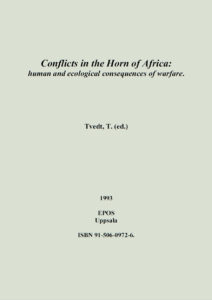 f
f
This volume Tvedt, T. (ed.) (1993). Conflicts in the Horn of Africa: human and ecological consequences of warfare. Uppsala: EPOS. ISBN 91-506-0972-6.
This collection of essays stems from a multidisciplinary workshop held at the University of Bergen, Norway, during April 1992. All contributions are attempts to understand and describe the problems of the Horn of Africa, its cultural, political and geographical settings in the context of human conflict. The book analyses and documents some collective consequences of different wars in Africa, with diverse characteristics: the immediate national and regional consequences of large-scale regional wars in Ethiopia and Eritrea and in the Sudan; the tribal warfare in south-western Ethiopia; the indirect and long-term consequences of World War 1 in the Blue Nile basin; and the destruction cause by warring clans in Somalia. The book focuses on a contextual analysis of issues leading to conflicts and consequences of conflicts. The chapters also point to another difficulty: how to distinguish between what is caused by war and what results from other factors.


